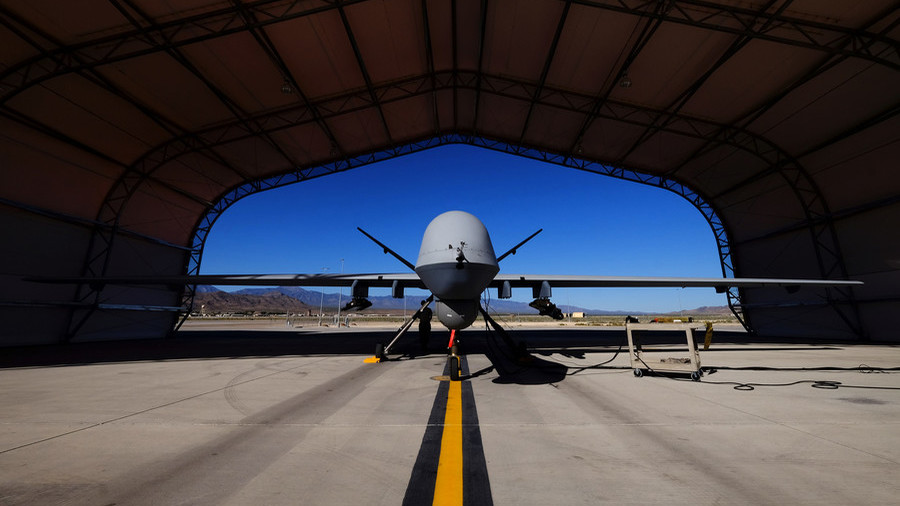Frightening and dangerous future of warfare as ‘Robocalypse’ is on the horizon
Frightening and dangerous future of warfare as ‘Robocalypse’ is on the horizon

If there is one thing the United States is increasingly adept at, its finding a way to make international warfare even scarier and unpredictable than it already is by its very definition. According to the Daily Beast, the US military has tested, on a number of occasions, a brain implant that allows a human operator to control, with their own thoughts, up to three unmanned aerial vehicles (UAV), simultaneously.
According to the agency which oversaw the computer-simulated tests – the Defense Advanced Research Projects Agency (DARPA) – the tests were conducted between June 2016 and January 2017.
The Daily Beast’s account states that the test subject, being partially paralyzed, was able to complete the tests by channelling his thoughts through a medical implant embedded in his skull, which used electroencephalogram (EEG) to interface with a computer simulation of a drone carrying out a mission in the company of two, simulated unmanned support aircraft. The support aircraft were apparently based loosely on fictional aircraft.
And how was this done? Through surgery. That’s right. The volunteer test subject, Mr Nathan Copeland, had to undergo surgery to place electrodes in his brain to successfully complete a neural interface. Through this surgery, Copeland was able to send brain signals to the drones and the drones were able to send signals back to him so that he was able to perceive the environment of the drone. The drone was then itself able to scan its environment, detect an obstacle in its pathway, and send the signal back to the operator with its recommendation.
In a separate phase of the experiment, a test subject was able to physically perceive the physical space and feel what the drone saw at the same time that the drone responded to the commands it was given. You might say that man and drone became one.
While this technology is still in its early stages, it certainly gives us a glimpse of the direction the United States is headed in: robotics that are controlled purely by the mind of a human operator. As of right now, the available commands are limited and mainly pertain to the turning of the drone in a particular direction. Obviously, making the leap from something that can be achieved in a computer simulation to something that can in fact be implemented in reality is something wholly other, but the fact remains that this is where the future of warfare is moving towards and has been for some time with very little media coverage.
In June 2013, a professor at the University of Minnesota was the first person to demonstrate a small quadcopter drone’s ability to fly through balloon hoops inside a gym, controlled only by a cap with 64 electrode sensors on a person’s head and computer.
According to the International Business Times, scientists at the University of Texas at San Antonio were also already working on this technology in 2014. The scientists were being funded by the Office of the Secretary of Defence and the US Department of Defence.
In February 2015, DARPA also made a further breakthrough when it announced that another volunteer, this time a quadriplegic, had flown a simulated F-35 stealth fighter using only her thoughts as well.
Approximately a year later, 16 people at the University of Florida used EEG headsets to steer drones along a 10-yard indoor course.
https://www.rt.com/op-ed/439788-mind-controlled-drones-warfare/?utm...
"Destroying the New World Order"
THANK YOU FOR SUPPORTING THE SITE!
Latest Activity
- Top News
- ·
- Everything
Ghislaine Maxwell & The Secret "Shadow" 9/11 Commission? | John Kiriakou
When the Communists Take Over America!...Famous 1957 Anti-Communist Movie
When the Communists Take Over America!...Famous 1957 Anti-Communist Movie
Are the End Times Drawing Near?
Catherine Fitts: Epstein, CIA Black Budget, the Control Grid, and the Banks’ Role in War
Ключові слова в тексті: як органічно їх вписати в статтю
© 2026 Created by truth.
Powered by
![]()


You need to be a member of 12160 Social Network to add comments!
Join 12160 Social Network